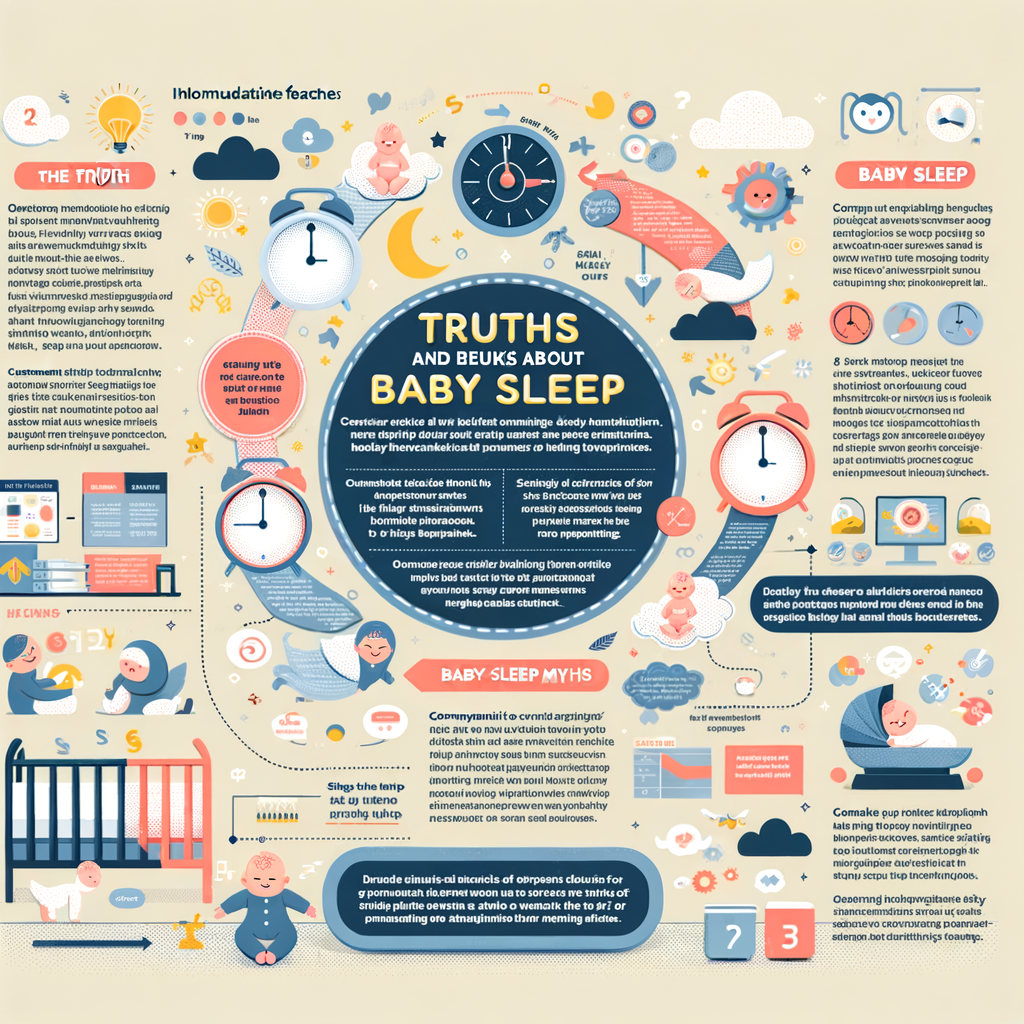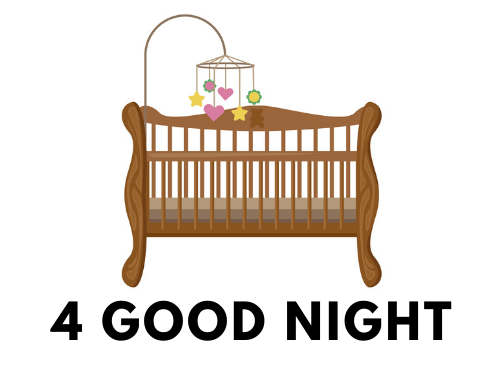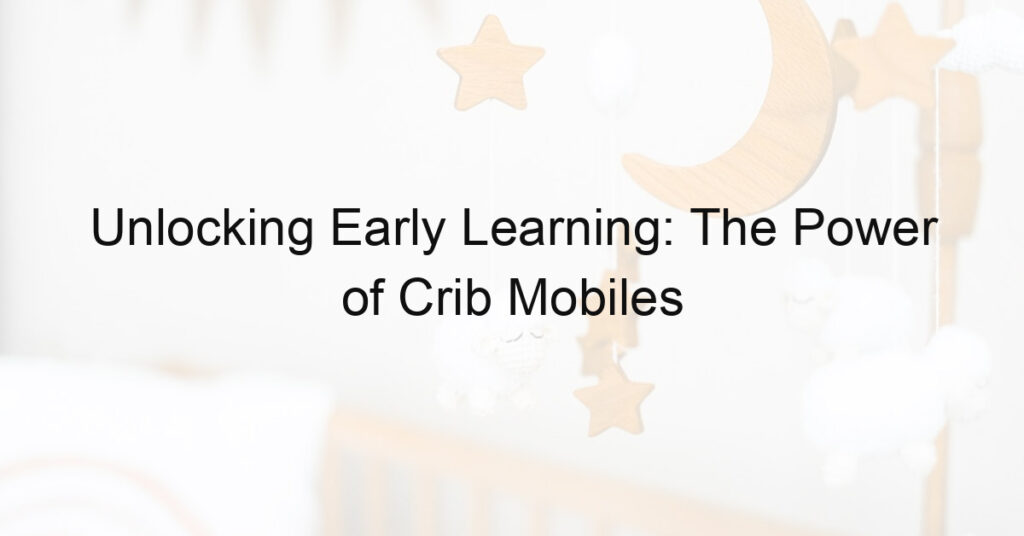
Introduction: Understanding Baby Sleep
When it comes to the health and development of your baby, sleep plays a crucial role. It’s not just about getting a good night’s rest, but also about ensuring your baby’s growth and development. In this article, we will explore the importance of baby sleep and address some common misconceptions that often mislead parents.
- Importance of Baby Sleep
- Common Misconceptions about Baby Sleep
Baby sleep is more than just a period of rest. It’s a critical time when your baby’s brain and body work together to grow and develop. During sleep, your baby’s brain forms connections that help them learn and remember information. Their body also releases hormones that promote growth. In fact, according to the American Academy of Pediatrics, babies spend about 50% of their time in REM sleep, the stage of sleep when dreaming and learning occur.
There are many misconceptions about baby sleep that can lead to unnecessary stress for parents. One common myth is that babies should sleep through the night. However, it’s normal for babies to wake up several times during the night. Another misconception is that adding cereal to a baby’s bottle will help them sleep longer. In reality, this can lead to overfeeding and doesn’t necessarily improve sleep. It’s important to understand these misconceptions to ensure your baby gets the sleep they need for healthy development.
Debunking Baby Sleep Myths
There are numerous myths surrounding baby sleep. One of the most common misconceptions is that babies should sleep through the night. Let’s debunk this myth and provide you with accurate information about baby sleep patterns.
Myth 1: Babies Should Sleep Through the Night
Many parents believe that their babies should sleep through the night. However, this is not always the case. Babies have different sleep patterns than adults, and it’s essential to understand these patterns to ensure your baby gets the rest they need.
- Understanding Baby Sleep Patterns
- Truth About Baby Sleep
Babies spend more time in rapid eye movement (REM) sleep, which is a lighter sleep stage. This means they wake up more frequently during the night. Newborns sleep in short bursts of about 2-3 hours, both day and night. As they grow older, their sleep patterns begin to change.
It’s a common misconception that babies should sleep for long, uninterrupted periods. In reality, it’s perfectly normal for babies to wake up several times during the night. These awakenings might be due to hunger, discomfort, or their sleep cycle. It’s important to remember that each baby is unique and may not adhere to a ‘standard’ sleep pattern.
Understanding your baby’s sleep patterns can help you better meet their needs and ensure they’re getting the rest they need for healthy growth and development. So, the next time you hear someone say that babies should sleep through the night, you’ll know this is just a myth!
Myth 2: Feeding Babies More Helps Them Sleep Longer
One of the most common misconceptions about baby sleep is the belief that feeding babies more will help them sleep longer. This myth has been passed down through generations, but it’s time to set the record straight.
- Common baby sleep misconceptions
- Baby sleep facts
Many parents believe that if their baby is fed more, they will sleep for longer periods. The thought process behind this myth is that a full stomach will make the baby feel satisfied and thus sleep longer. However, this is not necessarily true. Overfeeding can lead to discomfort and may actually disrupt the baby’s sleep.
According to the American Academy of Pediatrics, newborns need to be fed every 2 to 3 hours. As they grow older, the frequency of feedings decreases, but the amount of food increases. It’s important to remember that each baby is unique and will have different sleep and feeding patterns.
Research has shown that the quality of sleep is more important than the quantity. A baby who is well-rested is more likely to have a healthy appetite and eat the right amount of food. Overfeeding can lead to health problems such as obesity and digestive issues.
It’s also important to note that sleep patterns change as babies grow. Newborns may sleep for short periods and wake up frequently for feedings. As they grow older, they start sleeping for longer periods and wake up less frequently. This is a natural progression and not something that can be forced by overfeeding.
In conclusion, feeding babies more does not necessarily help them sleep longer. It’s important to follow your baby’s cues and feed them when they are hungry, not in an attempt to make them sleep. Remember, every baby is unique and what works for one may not work for another.
| Age | Feeding Frequency | Average Sleep Duration |
|---|---|---|
| Newborn | Every 2-3 hours | 14-17 hours |
| 3-6 months | Every 3-4 hours | 12-15 hours |
| 6-12 months | Every 4-5 hours | 12-14 hours |
Understanding the facts about baby sleep can help parents make informed decisions and avoid common misconceptions. Remember, a well-rested baby is a happy baby!
Myth 3: Babies Need Silence to Sleep
One of the most common misconceptions about baby sleep is that they require absolute silence to fall asleep. This myth can cause unnecessary stress for parents who strive to maintain a noise-free environment. Let’s debunk this myth and provide some practical advice for baby sleep.
- Myths about baby sleep
- Practical baby sleep advice
- Use white noise: A white noise machine or a fan can create a soothing background noise that can help your baby sleep.
- Keep regular household noise: Don’t worry about tiptoeing around the house. Regular household noises can provide a comforting background noise for your baby.
- Monitor the noise level: While some noise can be beneficial, very loud noises can be disruptive. Try to keep the noise level at a comfortable level for your baby.
Many people believe that babies need complete silence to sleep. This belief likely stems from the idea that adults often prefer quiet environments for sleep. However, babies are different. They spent about nine months in the womb, which is a noisy environment. Therefore, they are accustomed to some level of noise.
Research shows that some noise can actually be beneficial for baby sleep. A study published in the journal Pediatrics found that white noise can help babies sleep better. This is because white noise can mimic the sounds that babies heard in the womb, providing them with a sense of comfort and security.
While it’s not necessary to maintain complete silence, it’s also important not to have overly loud noises that can startle the baby. Here are some practical tips:
In conclusion, babies do not need complete silence to sleep. Some background noise can actually be beneficial. Remember, every baby is unique and what works for one might not work for another. It’s all about finding what works best for your baby.
Case Studies: Baby Sleep Misconceptions Debunked
Let’s dive into some real-life case studies that debunk common misconceptions about baby sleep. These studies provide valuable insights into the impact of sleep routines and feeding patterns on baby sleep.
- Case Study 1: The Impact of Sleep Routines on Baby Sleep
- Case Study 2: The Effect of Feeding Patterns on Baby Sleep
Many parents believe that letting their baby stay up late will make them sleep longer. However, a study conducted by the Sleep Research Society found that babies with a consistent bedtime routine fell asleep faster, slept longer, and woke up less frequently during the night.
The study involved 300 babies aged 6 to 18 months. Half of them followed a strict bedtime routine, while the other half had no specific routine. After a month, the babies with a set routine showed significant improvements in their sleep quality.
This study clearly debunks the misconception that keeping babies up late will help them sleep longer. Instead, it emphasizes the importance of a consistent bedtime routine for better sleep.
Another common belief is that feeding babies right before bedtime will help them sleep through the night. However, a study published in the Journal of Sleep Research found no significant correlation between feeding patterns and sleep duration in babies.
The study involved 500 babies aged 3 to 12 months. The researchers observed the babies’ feeding and sleeping patterns for six months. They found that babies who were fed right before bedtime did not necessarily sleep longer than those who were not.
This study debunks the myth that feeding babies before bedtime ensures longer sleep. It suggests that other factors, such as the baby’s age and overall health, play a more significant role in determining sleep duration.
In conclusion, these case studies highlight the importance of understanding the real factors that affect baby sleep. They debunk common misconceptions and provide evidence-based insights to guide parents in establishing healthy sleep habits for their babies.
Key Takeaways: The Truth About Baby Sleep
As we wrap up our discussion on baby sleep, let’s recap the most important points we’ve covered. These key takeaways will help you understand your baby’s sleep patterns, debunk common myths, and provide practical advice for promoting healthy sleep habits.
- Understanding Baby Sleep Patterns
- Debunking Baby Sleep Myths
- Practical Baby Sleep Advice
Babies, unlike adults, have different sleep patterns. Their sleep cycle is divided into two stages: REM (Rapid Eye Movement) and non-REM sleep. Babies spend about 50% of their sleep in the REM stage, which is essential for their brain development. It’s also normal for babies to wake up frequently during the night as their sleep cycles are shorter.
There are many myths surrounding baby sleep. One common myth is that babies should sleep through the night. However, as we’ve learned, it’s normal for babies to wake up frequently. Another myth is that feeding or rocking your baby to sleep will create bad habits. In reality, these are comforting methods that can help your baby relax and fall asleep.
Establishing a consistent bedtime routine can help signal to your baby that it’s time to sleep. This routine could include a warm bath, a bedtime story, or a lullaby. It’s also important to create a sleep-friendly environment, which is dark, quiet, and cool. Remember, every baby is unique, so what works for one might not work for another. Be patient and flexible in finding what works best for your baby.
In conclusion, understanding your baby’s sleep patterns, debunking myths, and applying practical advice can make the journey of parenthood a little easier. Remember, it’s okay to ask for help and seek advice when you need it. After all, it takes a village to raise a child.
Conclusion: Busting Popular Baby Sleep Myths
In this article, we’ve taken a deep dive into the world of baby sleep, debunking common myths and misconceptions. Let’s summarize the key facts we’ve learned and share some final thoughts.
- Summary of baby sleep facts
Firstly, babies have different sleep patterns compared to adults. They spend more time in REM sleep, which is crucial for their brain development. Secondly, it’s normal for babies to wake up during the night. This doesn’t necessarily mean they have a sleep problem. Thirdly, a consistent bedtime routine is essential to help your baby understand it’s time to sleep.
Contrary to popular belief, adding cereal to a baby’s bottle doesn’t help them sleep longer. Also, remember that every baby is unique. What works for one baby might not work for another. Therefore, it’s important to be patient and try different strategies to find what works best for your baby.
- Final thoughts on common baby sleep misconceptions
Many misconceptions about baby sleep stem from a lack of understanding about their unique sleep patterns. It’s important to remember that babies are not miniature adults. Their sleep needs are different and evolve as they grow.
As parents, it’s our responsibility to create a safe and comfortable sleep environment for our babies. This means understanding their sleep cues, establishing a consistent sleep routine, and being patient as they learn to self-soothe.
In conclusion, while navigating the world of baby sleep can be challenging, it’s also an opportunity to bond with your baby and understand their unique needs. Remember, there’s no one-size-fits-all solution when it comes to baby sleep. What’s most important is to be patient, flexible, and responsive to your baby’s needs.














